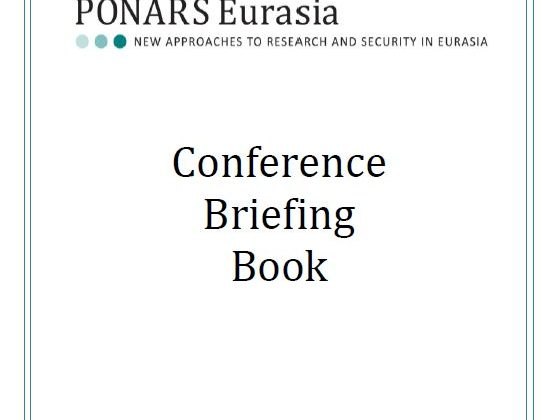Eastern Europe is a very volatile region with interests and identities of key actors far from stationary. Being pro-Russian or pro-European is a matter of interpretation. Is Ukraine’s Viktor Yanukovich pro-Russian? Are Romania’s Traian Basescu, Czech Republic’s Vaclav Klaus, and Hungary’s Viktor Orban unequivocally pro-European? These uneasy questions were reconnoitered in an appropriate location, Odessa, Ukraine, during a two-week summer school for young University educators (“The EU as a Security Actor”).
To begin with, Europe has troubles. The U.S. is giving attention to the Asian-Pacific region, making some European analysts uncertain about trans-Atlantic relations. China is a more active investor in many EU countries. EU institutions need bolstering. Some of the EU’s closest neighbors (Turkey and Egypt, for example) are increasingly eager to build their own policies toward the EU, instead of accepting EU’s normative recipes.
And of course, there’s Ukraine, a country ruled by a “Family” of a dozen of the closest associates of the president. Igor Koval, the Rector of Mechnikov National University in Odessa, says that neither of Yanukovich’s predecessors went as far as he is in concentrating power.
Sadly for the good citizens of Ukrainians, the EU has been gradually losing interest in cooperation with this country, as one participant suggested, with the reason being (partly) that Ukraine is unlikely to fall into Russia’s sphere of influence.
Neither Germany nor Poland – the only two EU member states with well-articulated Eastern policies – has serious political influence on Kyiv. Instead of its proclaimed “more for more policy,” the EU attitude to Ukraine is more like “nothing for nothing.”
Earlier, we wondered if the EU would flex its muscles at Ukraine around the Euro-2012 football games, but now we can say that Yanukovich’s regime was not pressured and did not suffer. Is this how “Lukashenkos” are formed? Gunter Waltzenbach of Bristol University argued for adaptation and learning as the guiding principles of EU’s policy in Eastern Europe. Volodymir Dubovik of Odessa National University riposted that the EU is adapting too much to its authoritarian neighbors, thus losing its normative core.
Economics are keys to understanding Eastern Europe’s orientations. Apparently, the government in Kyiv does understand the Greek lesson: weak economies face the prospect of absorption by major economic players. This is why Ukraine needs partners above and beyond the EU and Russia. Thus, in one participant’s words, Kyiv is left with an option of cooperating more closely with the United States, which may be an easier partner than those flanking it.
However, Ukraine is not a priority for the United States. Still, Washington carries great weight in Eastern European geopolitics and geoeconomics. Not incidentally, the Obama administration criticized Yanukovich about the Yulia Timoshenko trial a bit less sharply than the EU.
Turning to Russia, what is it striving for in its “near abroad?” The experts at the conference were unable to say whether Russia seeks an economic or political union.
Is the Eurasian Union blueprint a PR project or a demonstration of Russia’s imperial inertia? Rather I would say it is a mix of spheres-of-influence and technocratic approaches. Moscow is very hesitant to make political moves, especially in situations of “frozen conflicts.” Yet, Moscow is unhappy with the EU developing its own policies in Eurasia.
Presumably, some Russian politicians would like Russia’s neighbors to face a false dilemma – either integrate in Russia-patronized institutions or go West.
I remember that some time ago, Dmitry Medvedev tried to force Ukraine into making this decision: either stay with Russia or opt for Europe; interestingly, it was Foreign Minister Sergey Lavrov who disavowed this statement. Yet false dilemmas are unfortunately still alive.
Of course, the problem lies not in the EU with its modest Eastern Partnership resources, but in the lack of incentives from the Russian side. So far, the Eastern Partnership offers six countries nothing that would prevent them from cooperating with Russia.
In short, Russia’s foreign policy thinking lacks conceptual clarity, which is due to its predominantly technocratic nature. The Kremlin is weak in converting its economic inflows into political outflows. When it tries to be pragmatic, good results do not follow – neither in relations with the EU nor with its “near abroad.” When it tries to add more ideological tones to its policies, results are worse (e.g., isolation).
Russian Vice Prime Minister Dmitry Rogozin’s recent remark on twitter that it is “our people” who live in Transniestria is a case in point here about hidden appeals, debt, and a foreign policy underlined by Russian energy supplies.
Presumably, Moscow may want to take advantage of the current weakness of the EU, which is enmeshed in domestic financial troubles, but the key European country, Germany, still has its its Eastern European and Caucasus Ostpolitik.
*A “fortochka” is a small ventilation window . Andrey Makarychev is a Guest Professor at the Free University of Berlin, blogging for PONARS Eurasia on the Russia-EU neighborhood.









